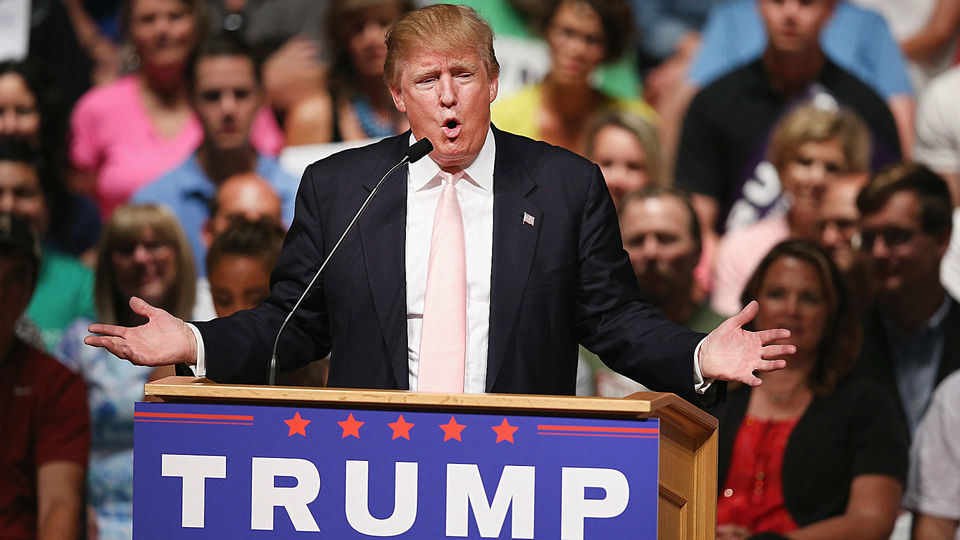The greatest threat to global stability in decades: Donald Trump
——–
Is any head of state rooting for Donald Trump to win the US presidential election today? Probably not. While many analysts had argued that Vladimir Putin or Xi Jinping were not only hoping for such an outcome, but — in Russia’s case — actively working towards it by coordinating cyberattacks against the Democratic Party, the real estate mogul represents a risk neither policy makers in China nor in Moscow would look forward to. (If Russian cyberattacks were indeed coordinated by the Kremlin, they are likely to be motivated by a desire to undermine the United States’ multiparty system in general, rather than seeking to elect a specific candidate.)
While Putin may enjoy the attention given to Russia in the US campaign, foreign policy advisors are likely to privately hope for a Clinton victory — the price of unpredictability is simply too high. In China, too, some observers sympathize with Trump and recognize that Clinton is a tough negotiator and perhaps more hawkish and direct than Barack Obama. And still, in the end, the foreign policy establishment in Beijing will prefer Clinton, “the devil they know”, to somebody who comes across as strikingly unpredictable. Lou Jiwei, Chinese finance minister, described Mr Trump as an “irrational type” when he suggested new tariffs on Chinese goods. Beijing is particularly worried because it will be within the next years that its challenge to US hegemony in Asia will become particularly evident — and it is aware of the risks involved if that happens with an inexperienced US president driven, above all, by vanity and vengeance. Managing the Sino-American relationship is ever more complex, and Beijing will prefer to deal with a known entity.
As Isaac Stone Fish points out in Foreign Policy,
But for many of Beijing’s political elite, the risks and uncertainties of a Trump presidency outweigh the benefits. Even though China would gain tremendously if Trump weakened U.S. commitments and alliances in Asia, they mostly believe Clinton is ultimately better for China, the source familiar with Chinese leader’s thinking said. Trump’s isolationism and his disregard for multilateral institutions would leave an international power vacuum that Beijing is not ready to fill.
The fact that not a single country wholeheartedly supports the Trump candidacy makes clear how deep-seated worries in capitals around the world are about the former reality TV star’s potential to negatively affect the stability of global order. While Trump has articulated some sensible points regarding the shortcomings of contemporary foreign policy (applying to all US governments since the end of the Cold War), his many other shortcomings make this election not about Clinton’s ideas vs. Trump’s ideas, but about predictability vs. unpredictability. That is also due to the Republican candidate’s views about economic policy. As Walt writes,
Trump’s views on international economics reflect a protectionist outlook that was discredited a couple of centuries ago. Tearing up the North American Free Trade Agreement or leaving the World Trade Organization would not restore American manufacturing or make the country “great” again; it would instead be a body blow to the United States and the world economy and could quite possibly trigger another global recession.
Just like with foreign policy, Trump could leave the economy to an experienced politician to assuage such fears. Still, the risk to the global economy would still be considerable.
Implications for Brazil
Even though Brazil is largely off the radar of US foreign policy, it could be one of the countries to suffer most from a Trump Presidency. The reasons are twofold. First of all, a Trump victory would probably end US attempts to push for trade liberalization, a move that would strengthen the global trend of protectionism. That would undermine one of the key pillars of the Temer administration’s economic strategy — namely, to catch up with the rest of the world and open up its economy. Secondly, the geopolitical instability generated by a Trump presidency is likely to lead to global economic volatility which would gravely undermine Brazil’s attempts to recover.
That does not mean a Clinton presidency would be good news for all — indeed, most observers expect her mandate to be plagued by constant attacks by the opposition that may force her to spend more time defending herself than governing. The opposition’s decision to block Barack Obama’s Supreme Court nominee would be a taste of what is to come.
Read also:
The Domestic Politics of US-American Foreign Policy
The death of the US pivot to Asia?
A Fractured West in a Post-Western World
Photo credit : Scott Olson / AFP









